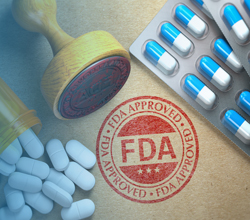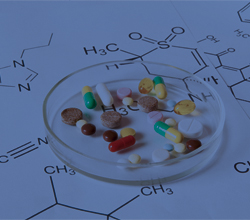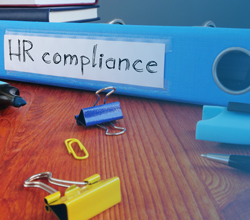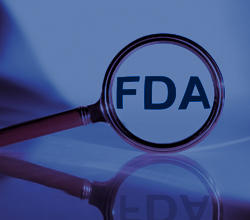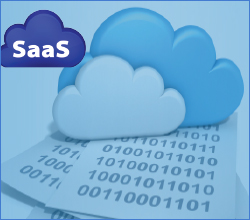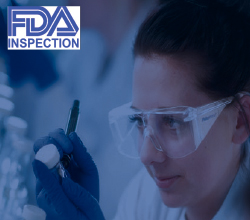
Food Allergen Programs: Management of Allergen Cross-Contamination and Validation of Cleaning Procedures to Ensure Effective Removal
 Rotimi Toki
Rotimi Toki
 90 Min
90 Min
Product Id: 702677
This webinar will provide guidance on how to develop and implement an effective cleaning validation plan, customized for specific scenarios, to ensure that the allergen is removed from the food processing line or equipment.

FDA’s Deeming Regulation, the Continuum of Risk and Modified Risk Tobacco
 Azim Chowdhury
Azim Chowdhury
 60 Min
60 Min
Product Id: 703809
This webinar will offer participants an understanding of the Tobacco Control Act, modified risk tobacco products and how FDA’s Deeming Regulation for currently unregulated products should be tailored for tobacco products depending on where they fall under the continuum of risk.

Product Recalls - Planning and Conducting a Product Recall and Crisis Communication
 Angeline Benjamin
Angeline Benjamin
 75 Min
75 Min
Product Id: 701438
This webinar will provide valuable education and assistance to all regulated companies that need to develop or improve their product recall and crisis management systems, including companies in the produce, meat and processed food fields.

FDA’s Proposed Preventative Control Regulation for Human Food under FSMA- 21CFR Part 117 and What You Should Know Now to Prepare for When it Becomes Effective in 2015
 Brian Hendrickson
Brian Hendrickson
 90 Min
90 Min
Product Id: 703706
This webinar will summarize the regulatory requirements for FDA’s proposed new regulation – “Current Good Manufacturing Practice and Hazard Analysis and Risk Based Preventative Controls for Human Food” - 21CFR Part 117. The GMP component of this regulation (Subpart B) is intended to replace the current outdated GMP regulation (21CFR Part 110) when it becomes effective, as expected, in 2015.

Implementing FDA's 21 CFR 111 for Dietary Supplements
 Dr. Ludwig Huber
Dr. Ludwig Huber
 75 Min
75 Min
Product Id: 703737
Although FDA's Dietary Supplement Current Good Manufacturing Practice (CGMP) Final Rule 21 CFR Part 111 has been enforced since 2010, manufacturers, distributors and importers are still not completely aware of its impact. This webinar will highlight best practices for implementing 21 CFR 111 for dietary supplements.

Good Warehousing Practices
 Brian Hendrickson
Brian Hendrickson
 90 Min
90 Min
Product Id: 703690
This webinar on good warehousing practices for human food will provide an introduction to FDA regulation requirements and proper procedures for food storage. It will emphasize the importance of proper storage procedures to avoid contamination of food that can cause illness or death. It will explain how FDA acts during and after inspections of food warehouses storing adulterated foods to ensure compliance with the FD&C Act and how warehouse facilities can ensure regulatory compliance.

Simplifying the Dietary Supplement cGMPs for Those Confused by the Regulations
 Jennifer Medlar
Jennifer Medlar
 60 Min
60 Min
Product Id: 703559
This webinar will explain cGMP regulations for dietary supplements. It will provide an overview of key requirements for dietary supplements including written procedures and records required by cGMP. Attendees will learn best practices to comply with these regulations.

ISO 22000 vs GFSI (SQF, BRC, IFS, and FSSC 22000): Meeting key Requirements
 Mark Kruk
Mark Kruk
 60 Min
60 Min
Product Id: 703557
This webinar will focus on ISO 22000 Food Safety Management System and its comparison to the Global Food Safety Initiative (GFSI) Standard. It will provide an overview of key requirements and will discuss differences and similarities between both the approaches. It will also address key strategic business factors to consider when selecting a particular approach.

Current Issues in the Regulation of Dietary Supplements
 Eric B Alspaugh
Eric B Alspaugh
 90 Min
90 Min
Product Id: 703556
This webinar will explain FDA regulations and current good manufacturing practices (cGMPs) for dietary supplements. Attendees will learn how to comply with these regulations and avoid enforcement actions.

Food Safety and Continual Improvement: Beyond Corrections and Audits
 Oscar Rodriguez Gonzalez
Oscar Rodriguez Gonzalez
 60 Min
60 Min
Product Id: 703361
This webinar will present a proactive approach to improve food safety management systems that go beyond corrective actions to deviations and findings from external audits. It will focus on the continual improvement methodologies to speed up or optimize processes, solve problems and manage complexity.

Are you prepared for a regulatory audit from FDA or any other regulatory body?
 Philip Russ
Philip Russ
 90 Min
90 Min
Product Id: 703355
This FDA audit training provides an overview of the audit readiness process from internal evaluation of your quality systems to the logistics of the audit itself; with key emphasis placed on equipping you and your team with the skills needed to present expert testimony during interviews with regulators.

3-hr Virtual Seminar: FDA's Establishment Registration and Product Listing Requirements, User Fees, Fee Waivers and Market Exclusivity
 Karl M. Nobert
Karl M. Nobert
 3 hrs
3 hrs
Product Id: 703269
This 3-hour training will review and compare FDA’s Establishment Registration and Product Listing Requirements; and available User Fees, Fee Waivers and Marketing Exclusivity for Drugs, Biologics, Medical Devices, Food, Tobacco and Animal Health Products.

Managing Products in California: Compliance with Prop 65, Green Chemistry and the Rigid Plastic Packaging Act
 Lee N Smith
Lee N Smith
 60 Min
60 Min
Product Id: 703266
This webinar will provide an in-depth understanding of California specific laws, affecting food and other product manufacturers and marketers, such as the Prop 65, the Green Chemistry Initiative, and the Rigid Plastic Packaging Act. We will discuss these laws, how to comply with them and avoid litigation.

Medical Foods: Understanding what Constitutes a Medical Food for FDA Regulatory Purposes and Strategies for Successfully Commercializing such Products in the U.S.
 Karl M. Nobert
Karl M. Nobert
 90 Min
90 Min
Product Id: 702508
This training on medical foods will provide an introduction to FDA’s regulation of medical products, assist you in identifying when it may be appropriate to market a product as a medical food; recommend strategies for marketing such products; and summarize recent FDA enforcement actions in the area to help companies mitigate the risk of potential Agency enforcement action.

Bacterial Contamination in a Product Facility
 Richard Anfuso
Richard Anfuso
 60 Min
60 Min
Product Id: 703217
This training on food safety compliance will provide the attendees with the knowledge of how food borne pathogens enter a food plant, expand its presence within the facility and contaminate the products. Attendees will learn the best practices for minimizing the presence of these pathogens in the food plant.

An Approach to Validating Allergen Cleaning Procedures
 Ian Ramsay
Ian Ramsay
 60 Min
60 Min
Product Id: 702685
This training on allergen cleaning will cover a rigorous approach to validating cleaning procedures or where cleaning is not possible supporting the need for a ‘may contain’ claim.

FSMA Update - Overview Three Sweeping Rules: Foreign Supplier Verification Program Rule, Third Party Auditor Accreditation Rule, Preventive Controls Rule and GMPs for Animal Food/Feed Rule
 Marc Sanchez
Marc Sanchez
 60 Min
60 Min
Product Id: 703193
This webinar will cover the basic mechanics of new rules under the Food Safety Modernization Act (FSMA); Foreign Supplier Verification Program rule, Third Party Auditor Accreditation rule, Preventive Controls rule and GMPs for Animal Food/Feed rule.

Preparing for a US FDA Food Facility Inspection
 Edwin V Rivera
Edwin V Rivera
 60 Min
60 Min
Product Id: 703155
This webinar will provide an update on the U.S. FDA's new Food Safety Modernization Act, its inspectional process and discuss how to prepare for an FDA inspection.

Medical Foods: Practical Tips to Meet FDA Requirements for Claims and Quality
 Mukesh Kumar
Mukesh Kumar
 60 Min
60 Min
Product Id: 702805
This medical foods regulatory compliance training will explain the regulatory processes to designate and market a product as medical food. Common issues with FDA compliance will be discussed using case studies and potential solutions will be provided.

How's your HACCP? Developing a HACCP program that is effective, appropriate and compliant
 Sean McCarthy
Sean McCarthy
 75 Min
75 Min
Product Id: 703069
This food safety training will review what is takes to build an effective HACCP plan, validate and verify it. It will discuss the prerequisite programs needed to even start the process, recordkeeping requirements, to who needs to be involved in the process and why.

